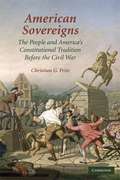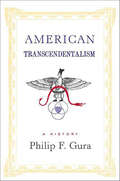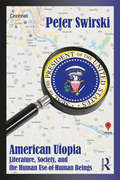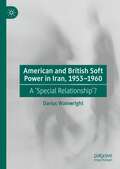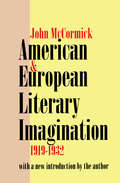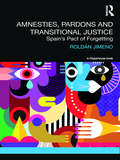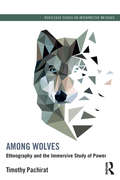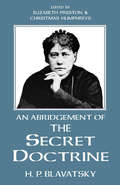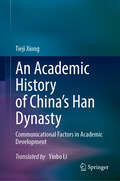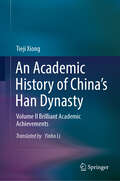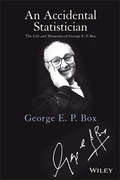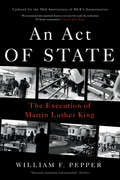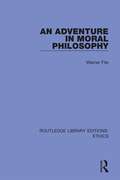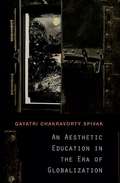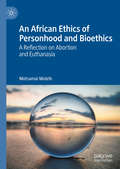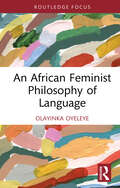- Table View
- List View
American Silences: The Realism of James Agee, Walker Evans, and Edward Hopper
by Joseph Anthony WardIn ""American Silences"", Joseph Anthony Ward offers a unique analysis of the use and effects of silence in modern American realistic art. Beginning with the nineteenth-century literature that laid the foundation for silence in art, he moves to a brief analysis of Sherwood Anderson's ""Winesburg"", Ohio and Ernest Hemingway's ""In Our Time"", showing how they, along with several other crucial works of twentieth-century American realism, incorporate the power of the silent into their expression without sacrificing the subjects and techniques of traditional realism. Examining ""Let Us Now Praise Famous Men"", James Agee's commentary on the life of tenant farmers, documented with photographs by Walker Evans, Ward traces the book's pattern of 'silence, then silence disturbed by sound, and ultimately silence restored'. Ward further supports his theory with a study of Agee's ""A Death in the Family"" and Evans' ""American Photographs"". Ward sees Agee's admiration of photography as a connection between the silence of the scenes he writes about and the silence of Evans' photographs. The use of silence is perhaps even more obvious in the paintings of Edward Hopper. Although throughout the book Ward suggests both the positive and negative qualities of silence in art, Hopper's paintings provide little in the way of postiveness. For Ward, the art of silence is an art of extreme concentration that seeks essences rather than superficiality that nearly transcends realism itself. The theme of silence in American realism is a significant new one, but Ward's interpretation of the prose and his analysis of the photographs and paintings, many of which are reproduced in this book, establish validity for art as the voice of silence.
American Sovereigns: The People and America's Constitutional Tradition Before the Civil War
by Christian FritzAmerican Sovereigns is a path-breaking interpretation of America's political history and constitutionalism that explores how Americans struggled over the idea that the people would rule as the sovereign after the American Revolution. National and state debates about government action, law, and the people's political powers reveal how Americans sought to understand how a collective sovereign--the people--could both play the role as the ruler and yet be ruled by governments of their own choosing.
American Sutra: A Story of Faith and Freedom in the Second World War
by Duncan Ryūken WilliamsDuncan Ryūken Williams reveals the little-known story of how, in the darkest hours of World War II when Japanese Americans were stripped of their homes and imprisoned in camps, a community of Buddhists launched one of the most inspiring defenses of religious freedom in our nation’s history, insisting that they could be both Buddhist and American.
American Transcendentalism: A History
by Philip F. GuraThe first comprehensive history of the nineteenth-century American intellectual movement.American Transcendentalism is a comprehensive narrative history of America’s first group of public intellectuals, the men and women who defined American literature and indelibly marked American reform in the decades before and following the America Civil War. Philip F. Gura masterfully traces their intellectual genealogy to transatlantic religious and philosophical ideas, illustrating how these informed the fierce local theological debates that, so often first in Massachusetts and eventually throughout America, gave rise to practical, personal, and quixotic attempts to improve, even perfect the world. The transcendentalists would painfully bifurcate over what could be attained and how, one half epitomized by Ralph Waldo Emerson and stressing self-reliant individualism, the other by Orestes Brownson, George Ripley, and Theodore Parker, emphasizing commitment to the larger social good.By the 1850s, the uniquely American problem of slavery dissolved differences as transcendentalists turned ever more exclusively to abolition. Along with their early inheritance from European Romanticism, America’s transcendentalists abandoned their interest in general humanitarian reform. By war’s end, transcendentalism had become identified exclusively with Emersonian self-reliance, congruent with the national ethos of political liberalism and market capitalism.
American Transcendentalists: Their Prose and Poetry
by Perry MillerA compilation of American transcendental poetry and prose--Emerson, Thoreau, and others.
American Transitional Justice: Writing Cold War History in Human Rights Litigation (Human Rights in History)
by Natalie R. DavidsonNatalie Davidson offers an alternative account of Alien Tort Statute litigation by revisiting the field's two seminal cases, Filártiga (filed 1979) and Marcos (filed 1986), lawsuits ostensibly concerned with torture in Paraguay and the Philippines, respectively. Combining legal analysis, archival research and ethnographic methods, this book reveals how these cases operated as transitional justice mechanisms, performing the transition of the United States and its allies out of the Cold War order. It shows that US courts produced a whitewashed history of US involvement in repression in the Western bloc, while in Paraguay and the Philippines the distance from US courts allowed for a more critical narration of the lawsuits and their underlying violence as symptomatic of structural injustice. By exposing the political meanings of these legal landmarks for three societies, Davidson sheds light on the blend of hegemonic and emancipatory implications of international human rights litigation in US courts.
American Utopia: Literature, Society, and the Human Use of Human Beings
by Peter SwirskiFrom Black Tuesday to the White House, from Plato to Robert Nozick, from Eugene Debs to Richard Nixon, from Peter Cornelis Plockhoy to the hippie communes of the Sixties, from universal basic income to utopian basic income, from proverbial wisdom to multilevel selection, from Big Data to paleomorality, from Prisoner’s Dilemma to social-engineering Israeli kindergartens, from time travel to gene engineering, from the pretzel logic of meritocracy to deaggressing humanity, American Utopia maps the pitfalls and windfalls of social reform in the name of the human use of human beings. Interrogating the assumptions behind four outré utopias by Thomas M. Disch, Bernard Malamud, Kurt Vonnegut, and Margaret Atwood, the book interrogates the assumptions that have historically been central to the utopian project. Whence the seeds of social discontent? Whence our taste for egoism and altruism? For waging war and waging peace? Can we bioengineer human nature to specifications? Should we? Who makes better guardians: humans or machines? And who will guard the guardians?
American and British Soft Power in Iran, 1953-1960: A 'Special Relationship'?
by Darius WainwrightThis book offers a distinctive approach to understanding Anglo-American relations with Iran in the early Cold War. It establishes how the United Kingdom and United States used soft power between 1953 and 1960 to combat communism and promote their respective ways of life in Iran. It identifies their motives, the types of initiatives employed, and the extent to which they perceived their policies to be a success. It is a historical case study through which wider conclusions regarding UK and US foreign policy can be drawn. As well as illustrating the competitive tensions within the Anglo-American 'special relationship', it highlights the role of individuals in the making and shaping of diplomatic endeavours. More broadly, the analysis of UK and US interactions in Iran through the prism of soft power underlines that there was more to both countries’ Cold War foreign policies than the containment of communism.
American and European Literary Imagination
by John McCormickWestern culture is composed of a subtle and complex mixture of influences: religious, philosophical, linguistic, political, social, and sociological. American culture is a particular strain, but unless European antecedents and contemporary leanings are duly noted, any resulting history is predestined to provincialism and distortion. In his account of American literature during the period 1919 to 1932, McCormick deals with the extraordinary work of artists who wrested imaginative order from a world in which the abyss was never out of sight.McCormick's volume is intended as a critical, rather than encyclopedic history of literature on both sides of the Atlantic between the end of World War I and the political and social crises that arose in the 1930s. Although he emphasizes American writers, the emergence of a vital and distinctly modern American literature is located in the cultural encounter with Europe and the rejection of national bias by the major figures of the period.McCormick deals with Gertrude Stein and the mythology of the "lost generation," the tensions and ambivalences of traditionalism and modernity in the work of Sherwood Anderson and F. Scott Fitzgerald, the effect and qualities of Hemingway's style as compared to that of Henry de Montherlant, and the provincial iconoclasm of Sinclair Lewis juxtaposed with the more telling satire of Italo Svevo. The formal innovations in the work of John Dos Passos, E.E. Cummings, and William Faulkner, the poetic revolution against cultural parochialism and genteel romanticism is given extensive consideration with regard to the work of T.S. Eliot, Ezra Pound, Wallace Stevens, William Carlos Williams, and Marianne Moore are also discussed. The concluding chapters discuss literary and social criticism and assess the influence of psychoanalysis, philosophical pragmatism, and radical historiography on the intellectual climate of the period.Teachers and students in English and American Literature, American History, and Comparative Literature, and the general reader interested in the writing of the period, may gain new insights from these valuations, devaluations, and re-evaluations.
American by Paper: How Documents Matter in Immigrant Literacy
by Kate VieiraAmerican by Paper reveals how two groups of immigrants who share a primary language nevertheless have very different experiences of literacy in the United States. It describes the social realities facing documented and undocumented immigrants who use everyday acts of writing to negotiate papers—the visas, green cards, and passports that promise access to the American Dream. It is both an ethnography, filled with illuminating details about contemporary immigrant lives, and a critical intervention into two leading—and conflicting—scholarly ideas of literacy and its social role.Although popular thinking and scholarship have viewed literacy as a method of culturally assimilating immigrants into the nation, Kate Vieira finds that upward mobility and social inclusion in the United States are tied to literacy in complex ways. She draws from extensive interviews with Portuguese-speaking migrants who live and work together in a former mill town in Massachusetts that she calls South Mills: one group from the Azores, who are usually documented, and another from Brazil, who are usually undocumented. She explains how these migrants experience literacy not as a vehicle for assimilation (as educational policy makers often assert) nor as a means of resisting oppression (as literacy scholars often hope) but instead as tied up in papers, particularly in the papers that confer legal status. Papers and literacy are inextricably bound together, both promoting and constraining opportunities, and they shape why and how migrants read and write.Vieira builds on insights from literacy theories that have long been in opposition to each other in order to develop a new sociomaterial theory of literacy, one that takes into account its inseparable link to paper, forms, and documentation. This point of view leads to a deeper understanding of how literacy actually accrues meaning by circulating, and recirculating, through institutions and the lives of individuals.
Amnesties, Pardons and Transitional Justice: Spain's Pact of Forgetting
by Roldan JimenoIn a consolidated democracy, amnesties and pardons do not sit well with equality and a separation of powers; however, these measures have proved useful in extreme circumstances, such as transitions from dictatorships to democracies, as has occurred in Greece, Portugal and Spain. Focusing on Spain, this book analyses the country's transition, from the antecedents from 1936 up to the present, within a comparative European context. The amnesties granted in Greece, Portugal and Spain saw the release of political prisoners, but in Spain amnesty was also granted to those responsible for the grave violations of human rights which had been committed for 40 years. The first two decades of the democracy saw copious normative measures that sought to equate the rights of all those who had benefitted from the amnesty and who had suffered or had been damaged by the civil war. But, beyond the material benefits that accompanied it, this amnesty led to a sort of wilful amnesia which forbade questioning the legacy of Francoism. In this respect, Spain offers a useful lesson insofar as support for a blanket amnesty – rather than the use of other solutions within a transitional justice framework, such as purges, mechanisms to bring the dictatorship to trial for crimes against humanity, or truth commissions – can be traced to a relative weakness of democracy, and a society characterised by the fear of a return to political violence. This lesson, moreover, is framed here against the background of the evolution of amnesties throughout the twentieth century, and in the context of international law. Crucially, then, this analysis of what is now a global reference point for comparative studies of amnesties, provides new insights into the complex relationship between democracy and the varying mechanisms of transitional justice.
Among Wolves: Ethnography and the Immersive Study of Power (Routledge Series on Interpretive Methods)
by Timothy PachiratSummoned by an anonymous Prosecutor, ten contemporary ethnographers gather in an aging barn to hold a trial of Alice Goffman’s controversial ethnography, On the Run. But before the trial can get underway, a one-eyed wolfdog arrives with a mysterious liquid potion capable of rendering the ethnographers invisible in their fieldsites. Presented as a play that unfolds in seven acts, the ensuing drama provides readers with both a practical guide for how to conduct immersive participant-observation research and a sophisticated theoretical engagement with the relationship between ethnography as a research method and the operation of power. By interpolating "how-to" aspects of ethnographic research with deeper questions about ethnography’s relationship to power, this book presents a compelling introduction for those new to ethnography and rich theoretical insights for more seasoned ethnographic practitioners from across the social sciences. Just as ethnography as a research method depends crucially on serendipity, surprise, and an openness to ambiguity, the book’s dramatic and dialogic format encourages novices and experts alike to approach the study of power in ways that resist linear programs and dogmatic prescriptions. The result is a playful yet provocative invitation to rekindle those foundational senses of wonder and generative uncertainty that are all too often excluded from conversations about the methodologies and methods we bring to the study of the social world.
Amor
by Sylvia GalleguillosEste libro está dedicado a desentrañar las energías que favorecen el impulso del amor desde las enseñanzas del Feng Shui y la aromaterapia. Nos ayudará a saber cómo influenciar nuestro destino y nuestra suerte con talismanes, ritos y consejos, legado de una sabiduría ancestral. Una herramienta poderosa al servicio del bienestar y el amor, de una de las maestras más importantes de estas disciplinas.
Amores tóxicos, futuros imposibles: El vivir feminista como forma de resistencia
by Irmgard EmmelhainzEL VIVIR FEMINISTA COMO FORMA DE RESISTENCIA... Porque, aunque las mujeres hayamos logrado puestos políticos, los temas que nos conciernen siguen siendo un tema secundario o suplementario a la política, y por eso estamos furiosas. Tomando en cuenta las urgencias del momento en el que vivimos, este ensayo está articulado como una bisagra que entrelaza una serie de diálogos imprescindibles con amigas imaginarias y reales. Las reflexiones tienen la preocupación común de esbozar debates urgentes que conciernen el estado del “ser mujer” en los albores de la segunda década del siglo XXI. Incorporo voces de otras mujeres en un intento urgente para resistir el presente en su compañía, en un mundo en el que una “voz de mujer” existe en cuerpos interpelados para ocupar posiciones importantes a trabajar en fábricas, unirse al ejército, pero cuyos cuerpos son sistemáticamente vulnerados por la violencia de género y por la doble carga impuesta para ejercer trabajo productivo y reproductivo. Porque, aunque las mujeres hayamos logrado puestos políticos, los temas que nos conciernen siguen siendo un tema secundario o suplementario a la política, y por eso estamos furiosas. «En este libro caleidoscópico y sustancioso -lleno de ideas provocadoras y de reflexiones propositivas, de punzantes preguntas, de citas felices y tremendas- Irmgard Emmelhainz se atreve a ir con y a contracorriente de sus pares: en su abordaje interseccional, comprometido con el futuro de las especies y de la tierra, no hay asunto del que se reste ni lema que no analice usando el afecto como poderosa herramienta política.» -Lina meruane «Los textos hilan, desde una escritura fragmentada, un complejo ensayo donde al tomarse lo político de manera personal lo levanta como un problema colectivo. Se enfrenta con las condiciones tóxicas del sistema mundo, capitalismo, patriarcado, racismo, colonialismo, crisis ecológicas. Insiste en el amor como un puente entre inconmensurabilidades que generen hoyos, aperturas, posibilidades, rasgaduras.» -Helena chávez mac gregor «Irmgard testimonia con valor y documenta con inteligencia aspectos cruciales de los dilemas que hoy enfrentan muchísimas mujeres. Su libro da cuenta, desde una perspectiva global y de clase poco común, de varias de las tensiones políticas que preocupan a los feminismos actuales.» -Marta lamas «Desde nuestra actualidad en vías del colapso, con su pluma politizada, hábil y filosa, Emmelhainz teje vínculos resistentes entre el arte, el activismo, los feminismos, los cuerpos/territorios insurrectos, la maternidad, colectividades cuir, y tanto más para hacer del acto de pensar no un martillo para acabar con la diferencia, sino un dedo que acaricia las heridas de la vulnerabilidad compartida.» -Gabriela jauregui
An Abridgement of Secret Doctrine
by H. P. BlavatskyThe creation of the universe and the nature of humanity as taught by the Ancient Wisdom. An abridgement of the original 1500 page work, The Secret Doctrine. Helena Petrovna Blavatsky (1831-1891) was born of a noble family in Russia. She became a student of metaphysical lore, and traveled to many lands, including Tibet, in search of hidden knowledge. In the 1870s she went to New York and, with Col. Henry S. Olcott and others, formed the Theosophical Society.
An Abridgement of the Secret Doctrine
by H P Blavatsky Elizabeth PrestonThe creation of the universe and the nature of humanity as taught by the Ancient Wisdom. An abridgement of the original 1500 page work, The Secret Doctrine. Helena Petrovna Blavatsky (1831-1891) was born of a noble family in Russia. She became a student of metaphysical lore, and traveled to many lands, including Tibet, in search of hidden knowledge. In the 1870s she went to New York and, with Col. Henry S. Olcott and others, formed the Theosophical Society.
An Academic History of China's Han Dynasty: Volume I Communicational Factors in Academic Development
by Tieji XiongThis book offers an innovative take on the study of Chinese academic history, approaching the subject from the perspective of broader social and cultural developments, one that is not only comprehensive and inclusive, but also sheds new light on the subject. The book investigates the main academic developments of the Han Dynasty, such as the formation of new-Confucianism and the new-Daoism of Han, the establishment of history studies, advances in astronomy and geography, breakthroughs in agronomy and hydraulics, and the achievements in traditional Chinese medicine. It also explores the cultural and political backgrounds, the main influencing factors, and the main features of academic developments, especially academic carriers and Chinese hermeneutics. It provides a new paradigm for academic history studies and includes many new theories, e.g., the reconstruction of the pre-Qin academics by the Han scholars. This book offers a unique resource for all those who want to learn about and understand Chinese history and culture, especially the academic history of the Han Dynasty.
An Academic History of China’s Han Dynasty: Volume II Brilliant Academic Achievements
by Tieji XiongThis book examines the academic legacy of the Han dynasty. It explicates the line between the explaining of a classical text (训诂) and the study of classical texts and their interpretation (训诂学). The study of hermeneutics was developed already, including the Chinese specific figure, meaning, sound, interpretation, and rites and systems. It details analyses of the Confucian School, Daoist School, Yin-Yang School, Legalist School, Terminologist School, Mohist School, Political Strategist School, Syncretist School, Agriculturalist School, and Literalist School. Among important classical works of the Han Dynasty examined throughout the book Shiji, Hanshu and Hanji are deeply analysed. Referring to various works during the Earlier and Later Han Dynasty, the author details categories of historiographical writing, i.e., the category of classical, official, and miscellaneous history, and different branches of analysis and interpretation.The book expatiates chapters on astronomy, mathematics, geography, agriculture, and medicine. Among these are the three theories on sky, the mathematics, map drawing, ox-plowing, an agricultural treatise, water project examinations, and the process of knowledge transfer and advancement in medicine during the Han Dynasty.
An Accidental Statistician
by George E. BoxCelebrating the life of an admired pioneer in statisticsIn this captivating and inspiring memoir, world-renowned statistician George E. P. Box offers a firsthand account of his life and statistical work. Writing in an engaging, charming style, Dr. Box reveals the unlikely events that led him to a career in statistics, beginning with his job as a chemist conducting experiments for the British army during World War II. At this turning point in his life and career, Dr. Box taught himself the statistical methods necessary to analyze his own findings when there were no statisticians available to check his work.Throughout his autobiography, Dr. Box expertly weaves a personal and professional narrative to illustrate the effects his work had on his life and vice-versa. Interwoven between his research with time series analysis, experimental design, and the quality movement, Dr. Box recounts coming to the United States, his family life, and stories of the people who mean the most to him.This fascinating account balances the influence of both personal and professional relationships to demonstrate the extraordinary life of one of the greatest and most influential statisticians of our time. An Accidental Statistician also features:* Two forewords written by Dr. Box's former colleagues and closest confidants* Personal insights from more than a dozen statisticians on how Dr. Box has influenced and continues to touch their careers and lives* Numerous, previously unpublished photos from the author's personal collectionAn Accidental Statistician is a compelling read for statisticians in education or industry, mathematicians, engineers, and anyone interested in the life story of an influential intellectual who altered the world of modern statistics.
An Act of State: The Execution Of Martin Luther King
by William F. PepperOn April 4 1968, Martin Luther King was in Memphis supporting a workers’ strike. By nightfall, army snipers were in position, military officers were on a nearby roof with cameras, and Lloyd Jowers had been paid to remove the gun after the fatal shot was fired. When the dust had settled, King had been hit and a clean-up operation was set in motion-James Earl Ray was framed, the crime scene was destroyed, and witnesses were killed. William Pepper, attorney and friend of King, has conducted a thirty-year investigation into his assassination. In 1999, Loyd Jowers and other co-conspirators were brought to trial in a civil action suit on behalf of the King family. Seventy witnesses set out the details of a conspiracy that involved J. Edgar Hoover and the FBI, Richard Helms and the CIA, the military, Memphis police, and organized crime. The jury took an hour to find for the King family. In An Act of State, you finally have the truth before you-how the US government shut down a movement for social change by stopping its leader dead in his tracks.
An Actor Survives: Remarks on Stanislavsky (Routledge Advances in Theatre & Performance Studies)
by Tomasz KubikowskiThis book focuses on the analysis and interpretation of the first volume of the book An Actor’s Work by Konstantin Stanislavsky. This volume is the only part of his planned major work on theatre art that he was able to finish and authorise before his death. Its highly edited variant has long been known as ‘An Actor Prepares’ in the English-speaking world. Tomasz Kubikowski explores Stanislavsky’s material not only as a handbook of acting but also as a philosophical testament of Stanislavsky, in which he attempts to contain his most essential experiences and reflections. This book explores the underlying theme of ‘survival’ in its various meanings, from professional to existential; and the mechanisms and actions we attempt to survive. This study will be of great interest to students and scholars in theatre and performance studies.
An Adventure In Moral Philosophy
by Warner FiteOriginally published in 1926, this book develops the Socratic thesis that morality is intelligence, that morality is not a matter of standards, laws and principles but in knowing what we do – in living self-consciously. The book develops this central theme in its bearings upon logic and science, art and religion and suggests that both intelligence and morality stand for much more than appears first obvious.
An Aesthetic Education in the Era of Globalization
by Gayatri Chakravorty SpivakDuring the past twenty years, the world s most renowned critical theorist the scholar who defined the field of postcolonial studies has experienced a radical reorientation in her thinking. Finding the neat polarities of tradition and modernity, colonial and postcolonial, no longer sufficient for interpreting the globalized present, she turns elsewhere to make her central argument: that aesthetic education is the last available instrument for implementing global justice and democracy. Spivak s unwillingness to sacrifice the ethical in the name of the aesthetic, or to sacrifice the aesthetic in grappling with the political, makes her task formidable. As she wrestles with these fraught relationships, she rewrites Friedrich Schiller s concept of play as double bind, reading Gregory Bateson with Gramsci as she negotiates Immanuel Kant, while in dialogue with her teacher Paul de Man. Among the concerns Spivak addresses is this: Are we ready to forfeit the wealth of the world s languages in the name of global communication? Even a good globalization (the failed dream of socialism) requires the uniformity which the diversity of mother-tongues must challenge, Spivak writes. The tower of Babel is our refuge. In essays on theory, translation, Marxism, gender, and world literature, and on writers such as Assia Djebar, J. M. Coetzee, and Rabindranath Tagore, Spivak argues for the social urgency of the humanities and renews the case for literary studies, imprisoned in the corporate university. Perhaps, she writes, the literary can still do something. "
An African Ethics of Personhood and Bioethics: A Reflection on Abortion and Euthanasia
by Motsamai MolefeThis book articulates an African conception of dignity in light of the salient axiological category of personhood in African cultures. The idea of personhood embodies a moral system for evaluating human lives exuding with virtue or ones that are morally excellent. This book argues that this idea of personhood embodies an under-explored conception of dignity, which accounts for it in terms of our capacity for the virtue of sympathy. It then proceeds to apply this personhood-based conception of dignity to bioethical questions, specifically, those of abortion and euthanasia. Regarding abortion, it concludes that it is impermissible since foetuses possess partial moral status. Regarding euthanasia, it argues that it is permissible for reasons revolving around avoiding the reversing of personhood. It also, though, minimally, touches on the questions regarding the mentally disabled and animals, to which it assigns lower moral status.
An African Feminist Philosophy of Language (ISSN)
by Olayinka OyeleyeThis book calls for the institution of an African feminist philosophy of language, challenging existing debates and encouraging a move away from the Western gaze.The book begins with an analysis of the philosophical context of African feminism, and a call for the decolonization of epistemological discourse. Oyeleye then goes on to consider how indigenous patriarchies play out in the cultural reality of the Yorùbá in particular, ontologically unpacking the nature of woman as expressed in language, especially in myths and proverbs. Challenging the derogatory language found in proverbs which entrench patriarchal oppression, the author advocates for feminist postproverbials: new proverbs which draw on old traditions but reconstruct the space of woman in a new, egalitarian rhetorical tradition. The author concludes by outlining the conditions necessary for African feminist philosophers to consider language as a decolonizing space which can help to push through the agenda of social change.This book will be an important resource for researchers from across the fields of gender and women studies, feminist philosophy, philosophy of language, cultural studies, and African studies.

